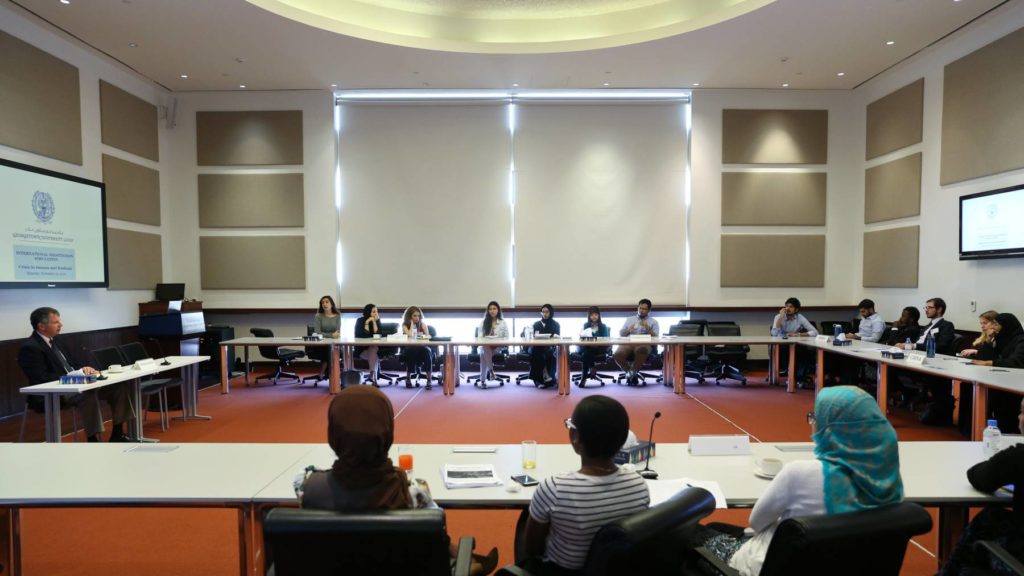Georgetown Students Act as Diplomats for a Day as Part of International Negotiation Exercise

‘Student diplomats’ were able to test their skills in conflict resolution and decision making at a recent international negotiation and crisis simulation exercise at Georgetown University in Qatar (GU-Q).
Set in a hypothetical future, the 8-hour exercise was an introduction to strategic negotiations where participants were required to work as a team to address a challenge facing the international community. In this case, students represented delegations from India, Pakistan, Russia, China, the United States, the United Kingdom, and the Jammu Kashmir Peoples’ Democratic Party, who met for talks mandated by a United Nations resolution.
The roleplaying exercise is designed to teach participants how to resolve complex issues with multiple stakeholders in a pressured environment. As each delegation received instructions from their ‘government’ on what outcome needed to be achieved, the students were given an intensive crash-course on how to negotiate mutually-beneficial agreements.
The exercise was led by the Director of Studies at the Institute for the Study of Diplomacy at Georgetown University’s Main Campus in Washington D.C., Professor James Seevers, and GU-Q’s Assistant Dean for Academic Affairs, Dr. Christine Schiwietz.
“The international negotiation simulation is one of our flagship experiential learning exercises where students have the opportunity to apply their theoretical understanding of global politics to a near real world situation in a scenario-driven gaming environment,” explained Schiwietz. “Passions run high and you can feel the enthusiasm and excitement all around — it truly is a terrific day.”
GU-Q first year, Salma Hassan (SFS ’20) was surprised at the complex and challenging environment presented by the exercise. “Even if it was just a stimulation, I was under pressure knowing how much depended on my negotiation skills—in our case, the biggest threat was nuclear war. I am glad to have participated in this exercise because it gave me valuable negotiation skills.”
“The simulation offers a glimpse of the complexity of international negotiations which are not found in textbooks,” explained Mohammed Al-Jaberi (SFS ‘19). “My biggest takeaway was that reaching a solution which satisfies all of the parties (in similar situations to the scenario of the simulation) is rather impossible. Each party of a conflict must be willing to compromise and settle for a lesser option than planned in order to reach a middle ground. I can imagine that international conflicts are not easily solved because parties of the conflict tend to hold their ground without putting an end to the particular crisis.”
The simulation is an annual event at GU-Q, which uses historical, predicted or current real-world examples focused on issues such as politics, security and humanitarian crisis to build students’ capacity in negotiation and decision-making. Previous scenarios have included civil war and humanitarian concerns in the Democratic Republic of Congo, conflict in the Straits of Taiwan, war between Armenia and Azerbaijan over Nagorno-Karabakh, and the humanitarian crisis in Syria.